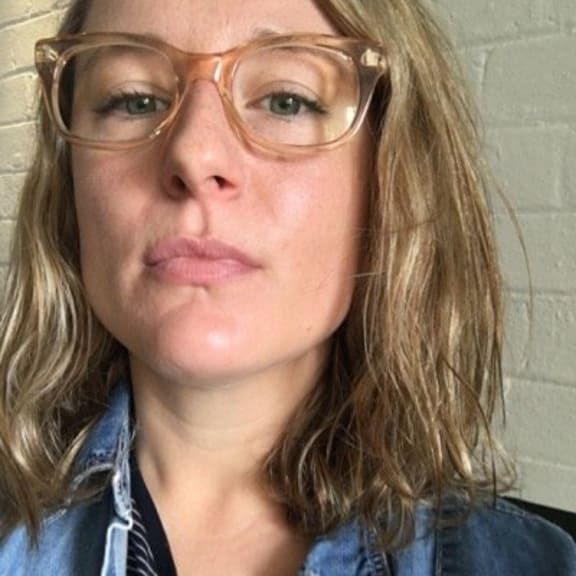
Eleanor Morgan Photo: twitter
Eleanor Morgan has suffered from crippling anxiety for at least fifteen years. She was 17 when she had her first panic attack during a lesson at school - the blackboard went blurry, her head started to prickle, her hands went numb and her bowels began to bubble alarmingly. "Within seconds I was convinced I was about to detonate there on my wooden stool... death became a certainty".
Eleanor Morgan is a writer for the Guardian, the Times, Indy, GQ, Harper's Bazaar, and others.
In her new book Anxiety for Beginners, she explores the roots of her own anxiety, and investigates what might be contributing to so many of us suffering around the world.
She talks to Jesse Mulligan about her journey.
Read an edited excerpt from their interview below:
Did you know what was going on when you had your first panic attack?
No, I didn’t. The only logical explanation I had was that I was going to die. I had no language for panic attacks, I wouldn’t have been able to tell you what one was. It was incredibly confusing and frightening.
Panic attacks are the extreme anxiety feeling. It’s a fight or flight reflex and the brain is activated. Almost every single one of us has the propensity to become very anxious. We all know how it feels. It’s an evolutionary function. When we perceive danger our body gets ready to run or to fight. The biochemistry that happens is in a part of the brain called the amygdala, which is a small part of the brain, very deeply buried. It becomes activated and talks to other parts of the body and then releases all sorts of chemicals throughout the body. Adrenaline, serotonin, cortisol ad the body is prepared for action. In terms of panic attacks and extreme anxiety, the system glitches a bit and we react to thoughts and memories, sometimes on an unconscious level and we go through the same process.
So it’s about sensing danger from within?
Yes. People have all sorts of different triggers. I was in a classroom, I don’t know exactly what triggered mine in the beginning. There would have been all sorts of thoughts going on… thinking and thinking and thinking. Ruminating. It’s a very frustrating thing that goes on in the brain and the body.
At that time, when you were getting panic attacks regularly and you didn’t know what to do about them and life was pretty difficult, is there anything that anyone could have said to you that might have helped?
It’s difficult because I, like so, so many other people, had built up a real sense of shame around it and miraculously I had been able to hide it from everyone. Nobody actually saw me have a panic attack, they all happened on my own.
You become a master of disguise. It can be very hard to be open with the people around you about the way you think.
What was it for you that helped you manage your anxiety?
Well I don’t want to scare people with this, but I had reached a crisis point with anxiety. I had been having more panic attacks than I ever had before and the fear of having them become so acute that I didn’t want to do anything. I was freelance at the time, so I was working from home, which was probably the worst thing actually. But I just retreated. The more I retreated the worse the anxiety became when I left the house to do things. It became untenable. I had to reach that point. Looking in the mirror and thinking, this isn’t a way to live, you need to accept that something is wrong and you need help.
You’d tried therapists before and some of them didn’t really work for you. And that’s one of the lessons that you’ve taken out of it, is trying a few and find the one you respond to.
I think that is very important. I think it’s a very common thing that people enter into therapy and they don’t feel like they’re getting along with their therapists, but actually like any other sort of business transaction, you don’t have to stay with that person and nor should you, if you don’t feel comfortable. There are so many different theories about what therapies are best, but I have come to believe that you get the most if you have a good rapport with someone and you’re able to be the most honest that you’ve probably ever been with someone.
Does it get worse before it gets better?
I felt a lot of relief from sitting down and talking frankly. Once you have accepted that you have a problem and you sit down in front of someone who can say to you, this problem is incredibly common, this is how we are going to help you manage it. Even the first session with someone can provide a lot of relief.
It takes time. There isn’t a cure for anxiety. I wished there was for a very long time. But it’s something that you have to accept and manage as part of your life. But it’s very possible to do that. I never thought I would be in the position that I am now. I would have laughed if you had told me three years ago that I had a. written a book about anxiety, and b. functioning how I do now.

